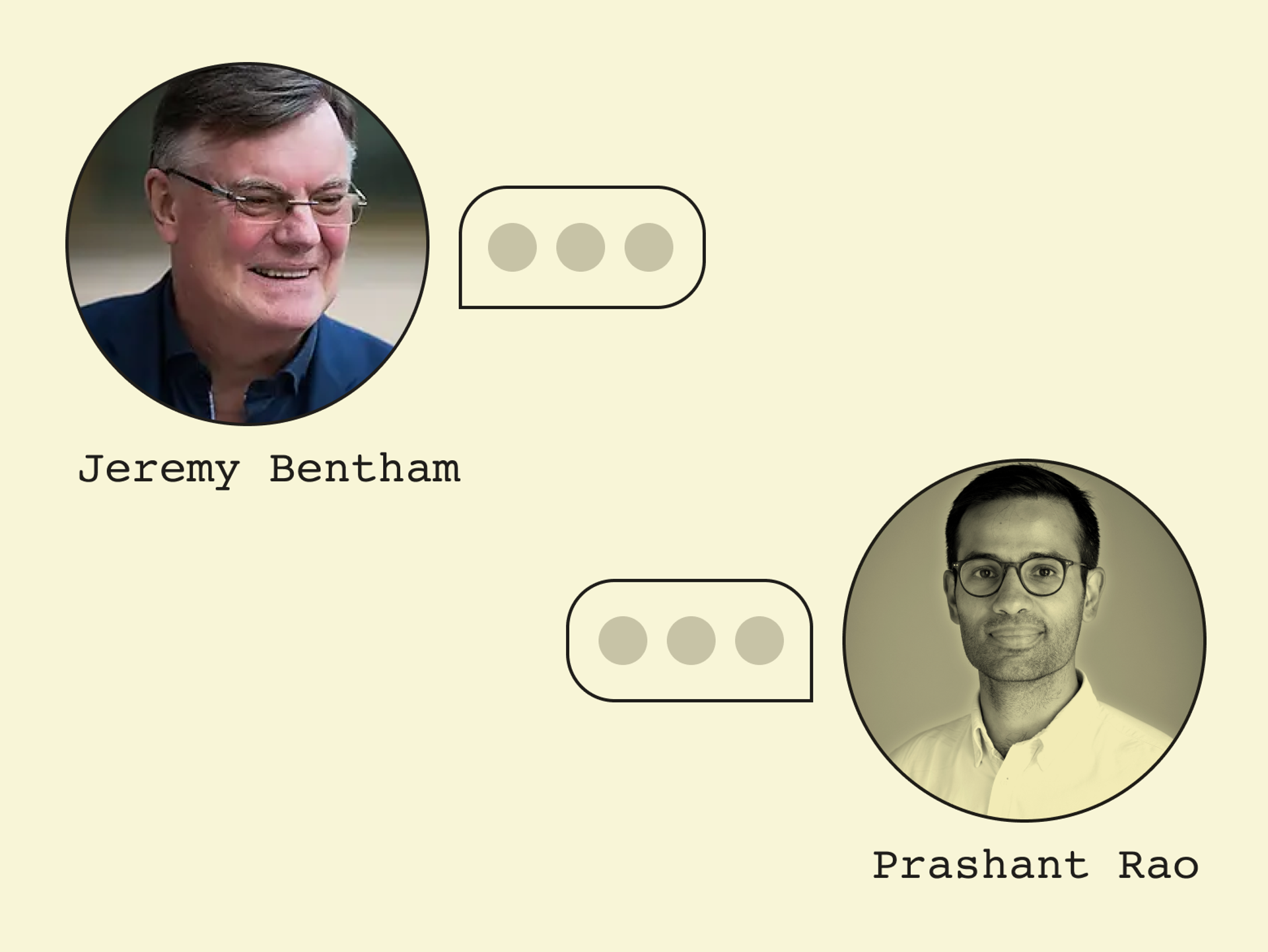10 Minute Text

‘We can break out of this stranglehold’: A top energy strategist on what gives him hope
Jeremy Bentham is co-chair of world energy scenarios at the World Energy Council and helped build Shell’s Scenarios team, which forecasts how the energy world will change. We talked about how he worries the energy transition is too often seen as a cost, rather than an investment or an opportunity.
Prashant Rao said:
P: Hi Jeremy, now still a good time?


Jeremy Bentham said:
J: Sure thing. I’m fortunate to be relaxing in the shade on a beautiful afternoon in France.
Prashant Rao said:
P: Not a bad life!


Jeremy Bentham said:
J: I’m grateful for the opportunity.
Prashant Rao said:
P: We always ask for a selfie from the people we chat with — can you send one over?


Jeremy Bentham said:

Prashant Rao said:
P: Haha looking very comfortable

Prashant Rao said:
P: OK great, let’s get started


Jeremy Bentham said:
J: Fire away
Prashant Rao said:
P: Thinking about the present, in 10 years time, what is the thing — the technology, the political shift, the trend — that you think we will look back on as defining the current moment, from an energy point of view?


Jeremy Bentham said:
J: I believe there are still radical uncertainties in the outlook but I hope we’ll look back and see the shift into a greater realisation of the economic potential of being an early mover in deploying new technologies. That this enlightened self-interest can be smart business, smart policy and smart politics.
Prashant Rao said:
P: That’s remarkably upbeat, given the drumbeat of headlines about 1.5C, the Ukraine war, etc.


Jeremy Bentham said:
J: I mentioned there are radical uncertainties which can lead to unfavourable outcomes, but more upbeat outcomes are still just about possible. On the policy side you can now see domestic industrial competitiveness through clean technology deployment firmly on the agenda in US, China and Europe, ie the biggest demand-driving economies.
Prashant Rao said:
P: OK got it.

Prashant Rao said:
P: On another note, we and others have written about how so much of the energy transition seems to be driven by private markets, or by partially state-owned companies.

Prashant Rao said:
P: You spent 40-odd years at Shell, and helped build their Scenarios team. Are public oil and gas companies like Shell ill suited for what is happening now? Will they survive?


Jeremy Bentham said:
J: You’d be surprised if I didn’t outline different possibilities! From one angle, the transitions we are talking about eventually have to be adopted by, and driven by, energy end-users. Nobody understands the huge range of end-user needs and behaviours than companies like Shell that serve multiple millions of customers every day and are experts at trading and supply to meet those needs.

Jeremy Bentham said:
J: On the other hand, large organisations do get hampered by “standard operating and assessment” processes that have been honed under different circumstances. So they will need to be innovative in adjusting their approaches more rapidly than they are used to. But they start with an important advantage in customer closeness.
Prashant Rao said:
P: Ha, yeah I would have been surprised if you’d agreed with me, I suppose


Jeremy Bentham said:
J: But I do believe in what I’ve just written!
Prashant Rao said:
P: OK, last question (or two questions, really). You’ve kind of hit on this in our conversation, but what is your biggest worry about the energy transition, or how we are undertaking it? And, on the other hand, what gives you hope?


Jeremy Bentham said:
J: My biggest worry is that over the past decades this has become framed in societal dialogue as a “cost” rather than a series of investment opportunities that are potentially very attractive for individual agents (companies, governments, customers) themselves with spin-off environmental benefits for society as a whole. My worry is that it takes too long to break out of the narrow-minded “cost” mindset.

Jeremy Bentham said:
J: What gives me hope is that we already have counter-examples of the benefits of breaking out. Look at the market value generated by companies like Tesla, Orsted and NextEra, and the domestic industrial stronghold in solar panel manufacturing established in China. We can break out of this stranglehold with smart business, smart policy and smart politics if we look at the situation in a new way.
Prashant Rao said:
P: That’s really thoughtful.


Jeremy Bentham said:
J: I hope it is a helpful perspective.
Prashant Rao said:
P: Thank you for this time, Jeremy, and for the insights. Enjoy France!


Jeremy Bentham said:
J: I certainly will!